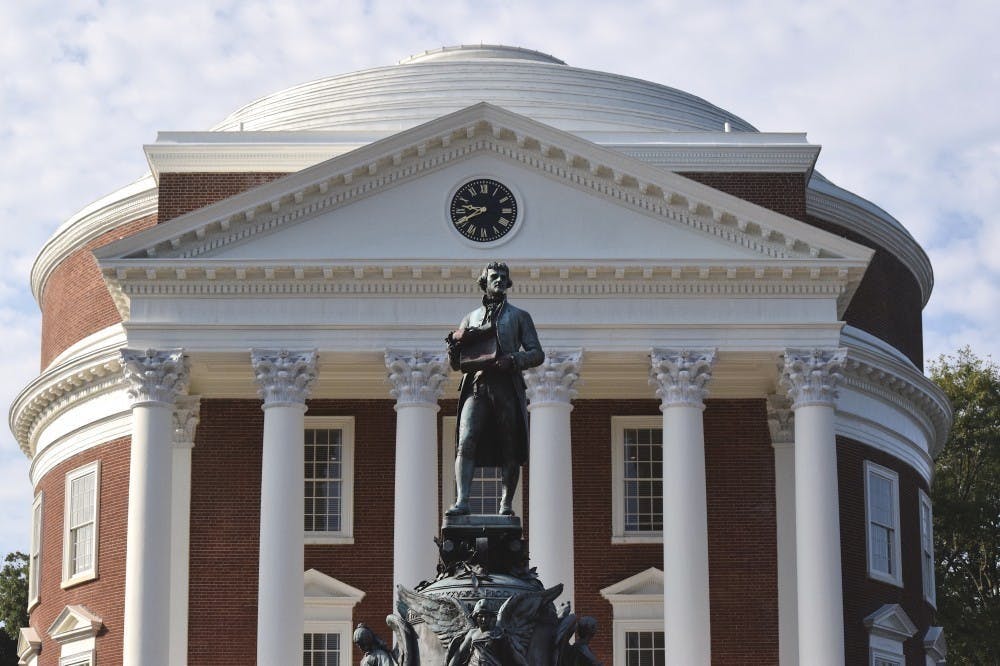Charlottesville City Council, on July 1, voted to cease the celebration of Thomas Jefferson’s birthday as Founder’s Day, citing the need for the city “to confront its history and to acknowledge that this community has not always embraced all of our citizens as equals.” Two weeks ago, fellow Opinion writer Jeremy Siegel wrote a piece calling for the reinstatement of this celebration. However, considering this country has ignored the systematic racism that it was built on for far too long, ceasing this celebration of a man who is known to have perpetuated the subjugation of black citizens of this country is a step towards acknowledging this oppression. It is not a removal of history — it is the acknowledgment of a history that has been swept under the rug for the past two and a half centuries.
In his piece, Siegel argues that “this seems to be the only side of Jefferson that City Council leaders want to see,” in reference to Jefferson’s history of owning slaves and the physical and sexual violence used against these enslaved workers. However, this claim just doesn’t seem to land — Jefferson has been celebrated by this city for years. To any University student, it would seem as if Jefferson were still alive today, walking amongst us. We see or hear references to him nearly every day, walking past his statues or a street that uses his name. Jefferson is so celebrated by this University, whether we agree with his past or not. The fact that this holiday ever existed in the first place demonstrates the issue with this argument — the current City Council is only attempting to remind us of the side of Jefferson that isn’t displayed throughout the community. The University, even, has refused to acknowledge his disgusting past until relatively recently. If anything, this side of Jefferson’s history is a side that hasn’t been allowed to be seen for centuries.
Moreover, I take issue with the idea that the removal of this day of celebration is somehow indicative of the erasure of Jefferson’s history — an argument made often, especially in relation to the removal of Confederate monuments. In fact, this move by Charlottesville’s City Council was the exact opposite. It is an awareness of Jefferson’s real history, the history that we have not been able to grapple with.
Furthermore, Siegel argues that “We have no right to teach history in schools if our governments only seek to erase it.” Siegel is completely correct with this claim — we have no right to teach the history of this country if we are just going to erase the atrocities committed by the men we have decided to celebrate, Jefferson included. This idea that ceasing the celebration of Thomas Jefferson somehow erases his connection to this University and this city disregards the fact that this is exactly what we have already been doing for years to the enslaved workers who built this institution. This University is not Jefferson’s achievement — it was created on the backs of thousands of enslaved workers and we are just now beginning to recognize that.
Historically, the University has existed to serve one group in particular. This University was founded for white men. While strides have been made to bridge the gender gap since the University became fully coeducational in 1970, the University still severely lacks racial diversity. Notably, black students, who in 2018, made up less than 7 percent of the University’s entire undergraduate population. If we want to address the serious racial gap at this University, we need to also address our celebration of a man who, if he had his way, would have kept this as an institution strictly for rich white men. We should strive to make this community as welcoming as possible for people of all backgrounds and celebrating a violent, racist man is not the way to do that.
Jefferson did contribute a lot to the founding of this University and of this country, and I am not arguing that we should simply forget this. We can still acknowledge Jefferson’s contributions without celebrating him. We have to note that Jefferson was not just slightly morally reprehensible — he was a slave owner who continued the aggressive persecution of an entire race of people. It is suspected that he raped multiple slaves, as we see with the story of Sally Hemmings. It is clear that he did not view these enslaved workers as having any human dignity or as deserving of any human rights. Jefferson was a bad man, and that is something we need to come to terms with and the move by City Council was a step in the right direction. It signals a change in our discussion of history that finally acknowledges the atrocities committed by many of the people we still choose to celebrate today.
Zack Pasciak is an Opinion Columnist for The Cavalier Daily. He can be reached at opinion@cavalierdaily.com.







